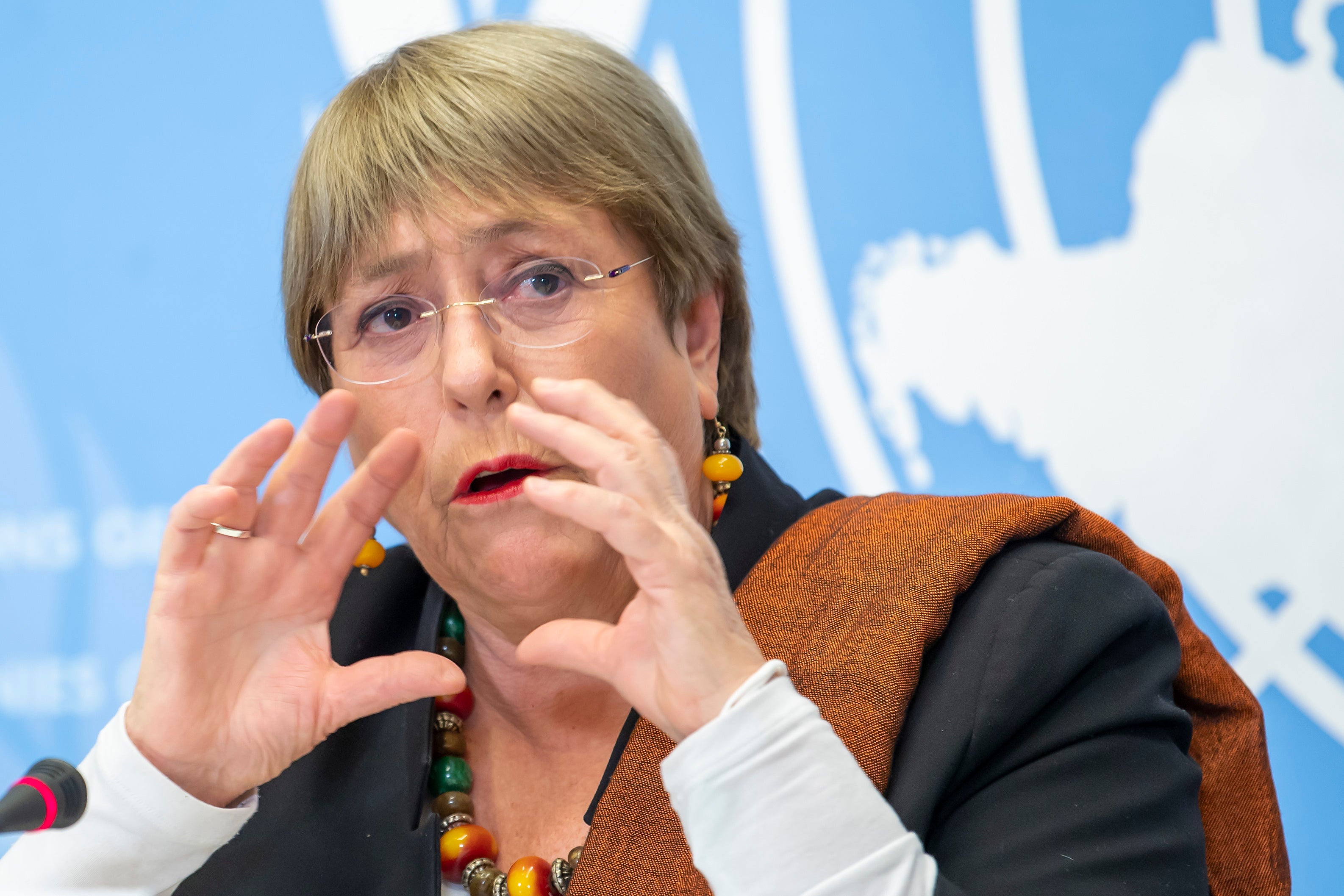UN rights chief sees 'horror story' of violations in Ukraine
The United Nations’ human rights office has pointed to what it says is growing evidence of war crimes since the Russian invasion of Ukraine, declaring that humanitarian law appears to have been “tossed aside.”

Your support helps us to tell the story
From reproductive rights to climate change to Big Tech, The Independent is on the ground when the story is developing. Whether it's investigating the financials of Elon Musk's pro-Trump PAC or producing our latest documentary, 'The A Word', which shines a light on the American women fighting for reproductive rights, we know how important it is to parse out the facts from the messaging.
At such a critical moment in US history, we need reporters on the ground. Your donation allows us to keep sending journalists to speak to both sides of the story.
The Independent is trusted by Americans across the entire political spectrum. And unlike many other quality news outlets, we choose not to lock Americans out of our reporting and analysis with paywalls. We believe quality journalism should be available to everyone, paid for by those who can afford it.
Your support makes all the difference.The United Nations' human rights office on Friday pointed to what it said is growing evidence of war crimes since the Russian invasion of Ukraine, declaring that humanitarian law appears to have been “tossed aside.”
Michelle Bachelet, the U.N. high commissioner for human rights, said that “our work to date has detailed a horror story of violations perpetrated against civilians.”
Her office's mission in Ukraine so far has verified 5,264 civilian casualties, including 2,345 deaths, since the war began on Feb. 24. It said that 92.3% of those were recorded in Ukrainian government-controlled territory. The office uses strict methodology and has long acknowledged that its confirmed figures are far short of the real numbers.
“The actual numbers are going to be much higher" as more details emerge from places such as Mariupol where there is intense fighting, Bachelet said.
“Over these eight weeks, international humanitarian law has not merely been ignored but seemingly tossed aside,” she added.
Her office said in a statement that “Russian armed forces have indiscriminately shelled and bombed populated areas, killing civilians and wrecking hospitals, schools and other civilian infrastructure — actions that may amount to war crimes.” It added that the U.N. mission also has “documented what appears to be the use of weapons with indiscriminate effects, causing civilian casualties and damage to civilian objects, by Ukrainian armed forces in the east of the country.”
Bachelet said that “the scale of summary executions of civilians in areas previously occupied by Russian forces” is emerging.
On April 9, U.N. human rights officers visiting Bucha documented the unlawful killing, including by summary execution, of some 50 civilians, her office said. The U.N. mission has received more than 300 allegations of killings of civilians in previously occupied towns in the Kyiv, Chernihiv, Kharkiv and Sumy regions.
Russian officials have denied that their soldiers killed any civilians in Bucha and other towns around Kyiv from which they retreated three weeks ago, and accused Ukraine of staging the atrocities.
The U.N. rights office said its mission also has recorded 114 attacks on medical facilities “although the actual figure is likely to be considerably higher.”
“We estimate that at least 3,000 civilians have died because they couldn’t get medical care and because of the stress on their health amid the hostilities," Bachelet said. "This includes being forced by Russian armed forces to stay in basements or not being allowed to leave their homes for days or weeks.”
The U.N. mission so far has received 75 allegations of sexual violence against women, men, girls and boys by Russian soldiers, most in the Kyiv region. The human rights office said detention of civilians “has become a widespread practice” in areas controlled by Russian forces and affiliated groups, with 155 such cases reported so far.
It said it also received information about “alleged arbitrary and incommunicado detentions” by Ukrainian forces or people aligned with them. And it pointed to videos put out by both sides apparently showing the intimidation, interrogation, torture or killing of prisoners of war.
___
Follow all AP stories on Russia’s war on Ukraine at https://apnews.com/hub/russia-ukraine